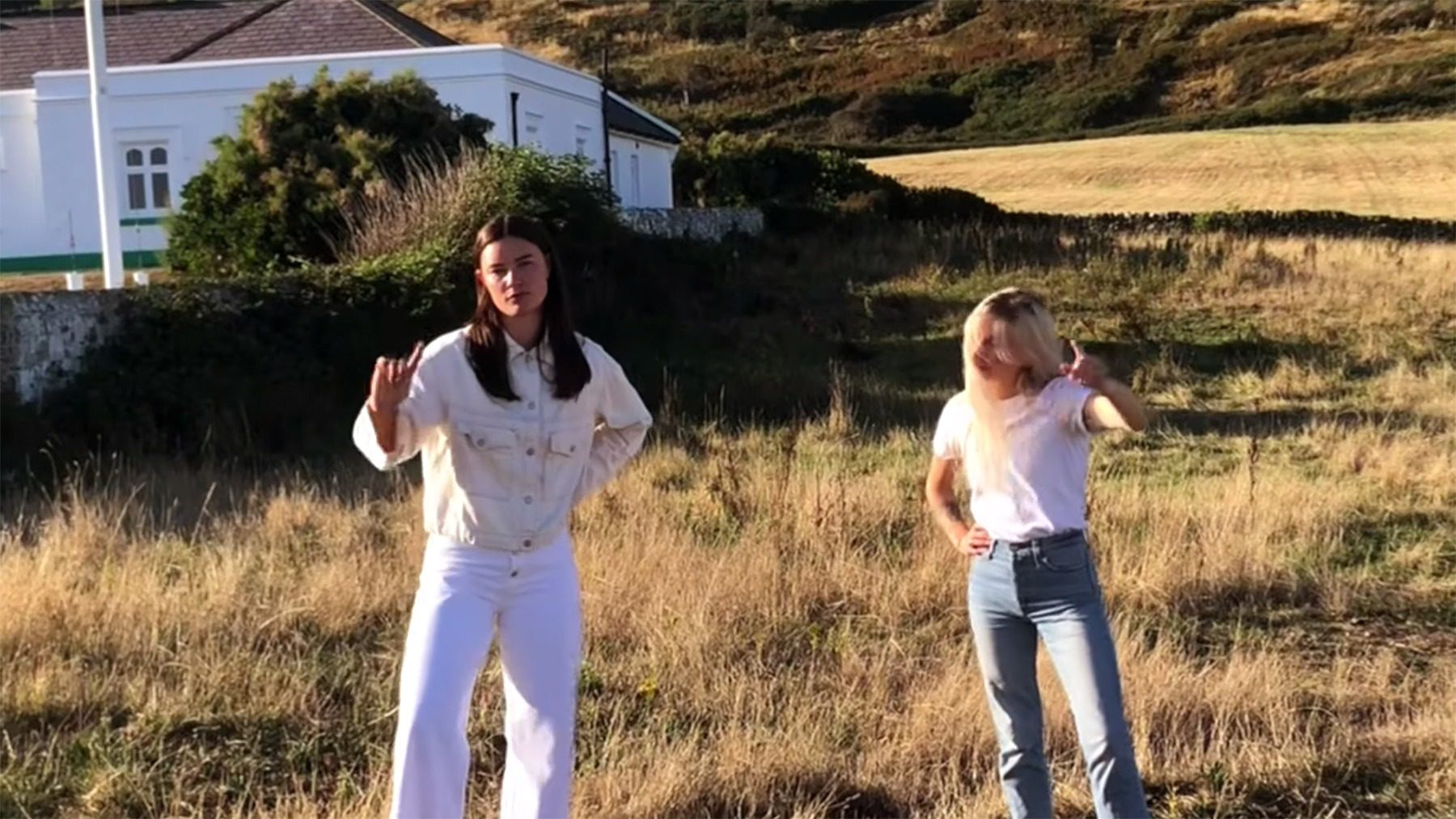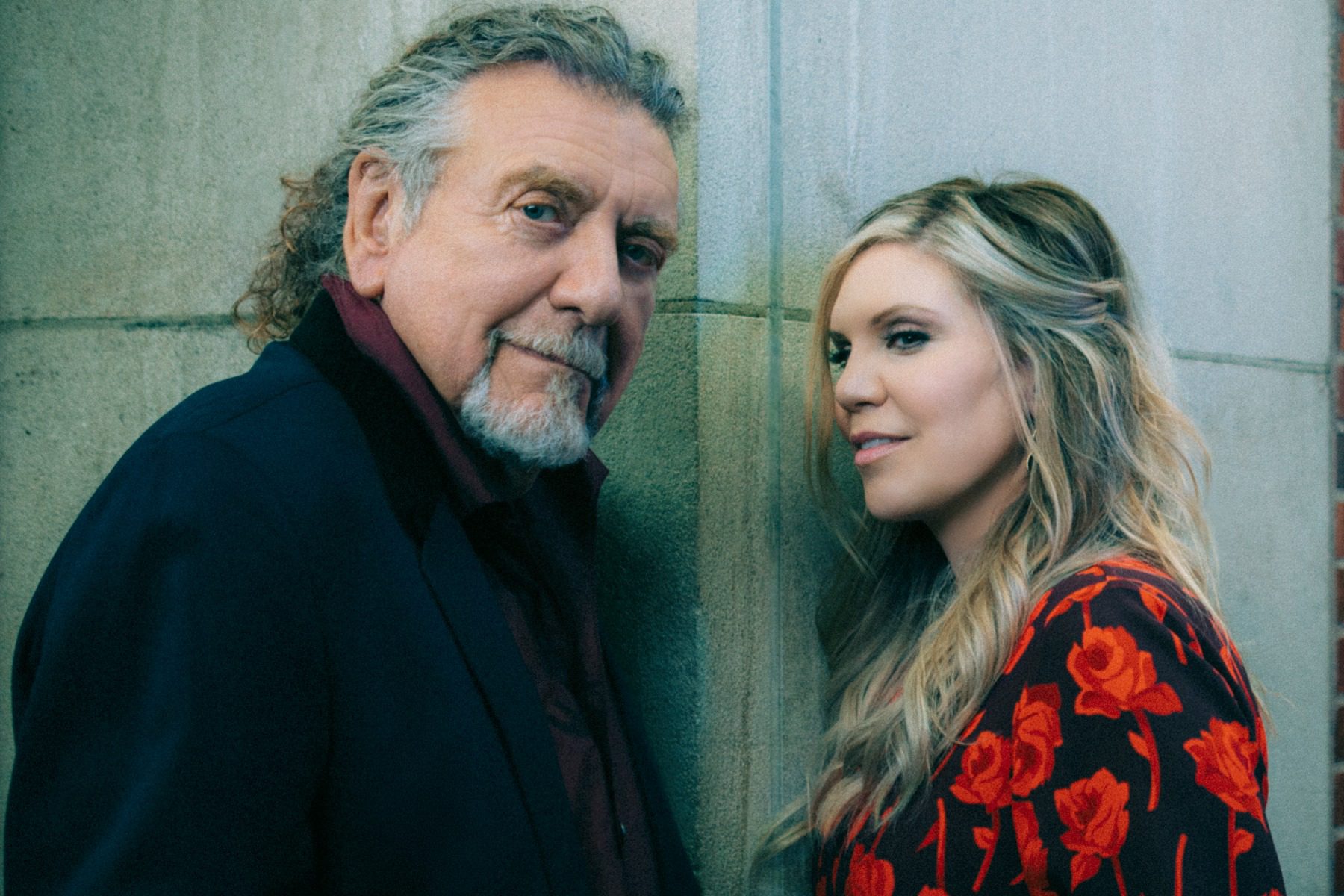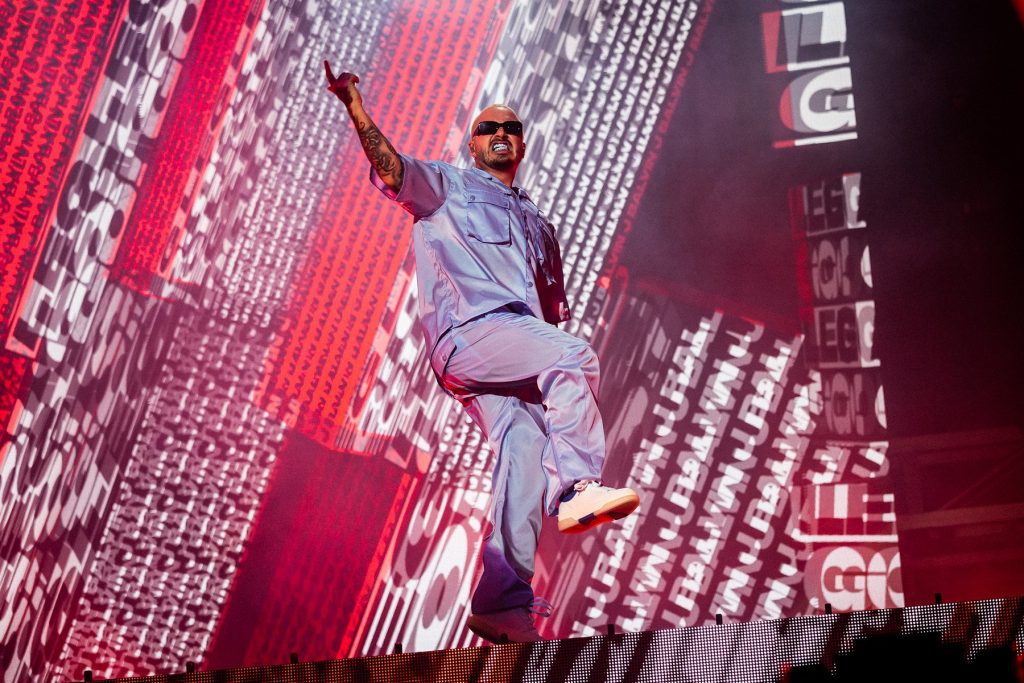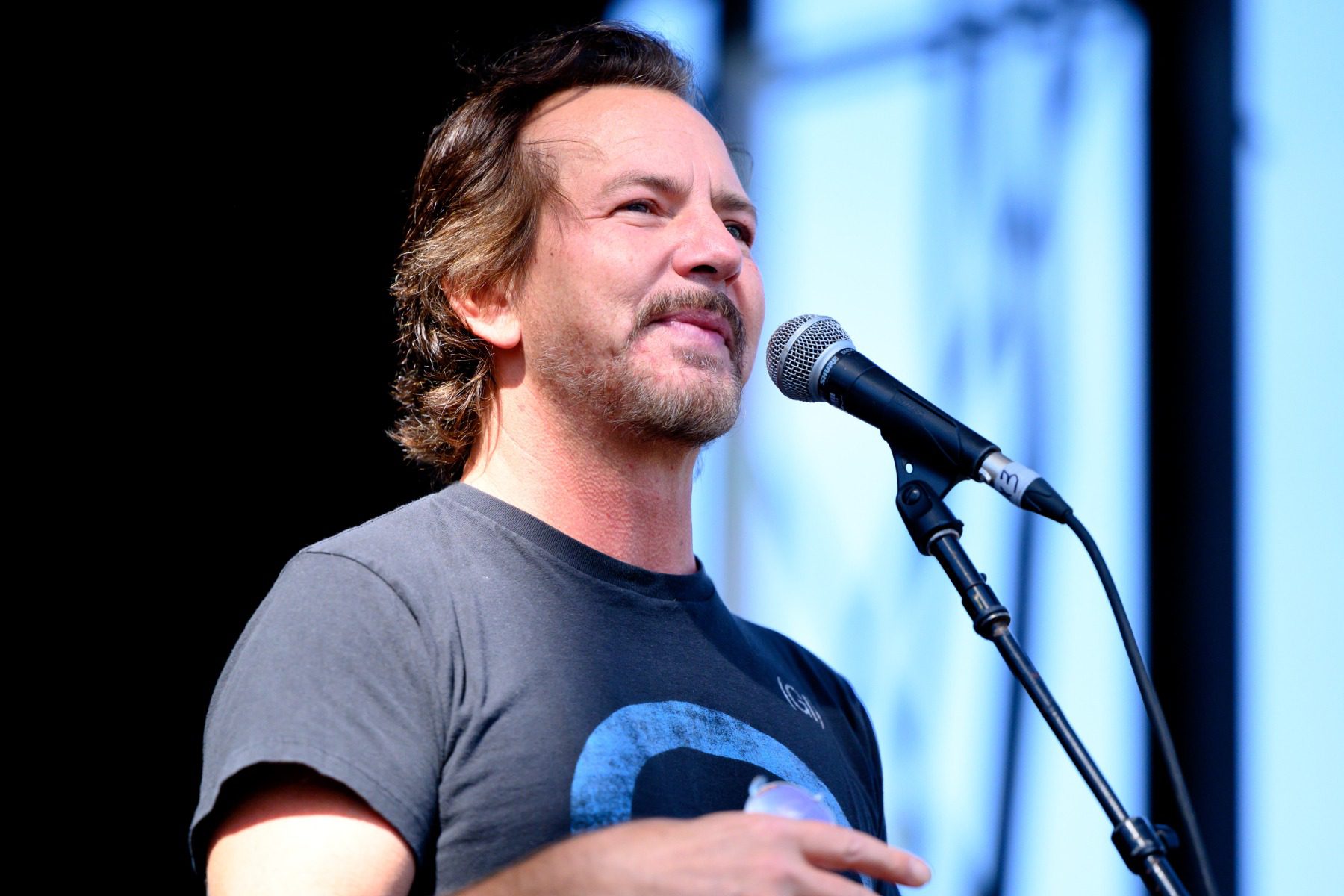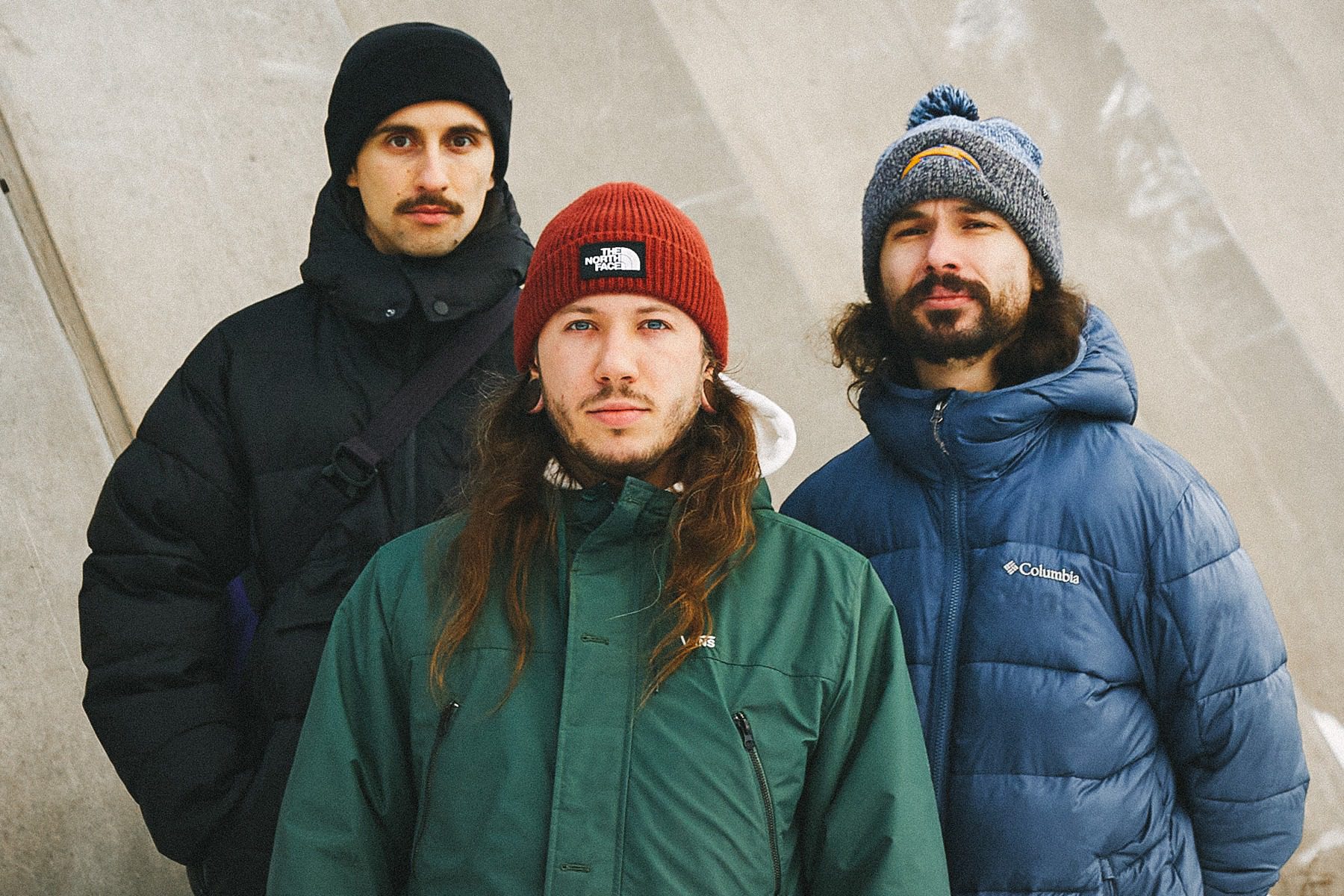
‘I’m Destroyed Inside’: Ukraine’s Flourishing Music Scene Faces an Existential Threat
The guitars and effects pedals were left behind, but Kyrylo Brener had no choice. When Russia invaded his home country, Ukraine, the guitarist, who plays in the power trio Kat, grabbed essentials like clothes and water and left his native city of Kharkiv, driving west with his wife. Talking by Zoom from a relative’s house several hours from Kharkhiv, Brener is still shaken. “I hope this thing will somehow be ended and we will be able to play,” he says. “But right now we can’t make plans, even for the next day. I don’t know what will be next.”
Russia’s invasion of Ukraine has upended every aspect of life in that country, including its thriving music community. Although most of its artists aren’t well known outside Ukraine, the country — especially since the 2014 revolution that made it a democracy — has fostered a growing and diverse pop scene that has brought homegrown flavor to hip-hop, dance-pop, techno, punk, and hardcore.
There’s something for nearly every listener in Ukraine. Fo Sho, three sisters based in Kyiv and Kharkiv, blend hip-hop with influences from their Ethiopian heritage. Onuka offers up haunting electro-pop. Postman’s delicate acoustic indie-pop reveals his love of Bob Dylan, Nick Drake, and David Crosby. The Ukraine scene also includes the electric throb of Vagonovozhatye, the multi-textured synth-pop of Kurgan & Agregat, the hard-charging hip-hop of Alyona Alyona, the riot-grrrl assault of Death Pill — just a few of the hundreds of noteworthy Ukrainian artists bounding into nearly every genre.
blogherads.adq.push(function () {
blogherads
.defineSlot( ‘medrec’, ‘gpt-dsk-tab-article-inbody1-uid0’ )
.setTargeting( ‘pos’, [“mid-article”,”mid”,”in-article1″,”mid-article1″] )
.setSubAdUnitPath(“music//article//inbody1”)
.addSize([[300,250],[620,350],[2,2],[3,3],[2,4],[4,2],[640,250]])
;
});
Ukraine is also home to an indie-label world and a thriving live-music scene in Kyiv and other parts of the country. “After 2014, I felt that my country never experienced such a good time because really, everything was blossoming in a way,” says singer, songwriter, and guitarist Kostiantyn Pochtar, the artist behind Postman. “It all started back then, after the revolution.”

Kostiantyn Pochtar, a.k.a. Postman.
Andriy Boyar*
Adds Bodya Konakov, a DJ and techno label owner who records liquid rave soundtracks under the name Konakov, “A lot of interesting artists had a chance to show their music to the whole world. Everybody was interested what this revolution would bring. It was like a wave. Everybody wished to take part in building a new music scene. It was a beautiful time of solidarity, and we can see now that we have a strong music scene.”
But now, like the country that fostered it, that music community is under serious threat. From musicians to DJs to industry workers, the members of Ukraine’s music world are trying to decide to stay or go — and wondering if their hard-earned scene will survive Russian domination or be destroyed by it. “I don’t even know how I can write music now,” says Olga Korolova, who, as DJ Korovola, has been spinning techno in her country and abroad for over a decade. “I don’t know because I don’t have a passion. I’m destroyed inside. I feel empty, really empty.”
Whether folk, punk, or EDM, lots of music existed in the Ukraine before the Maidan Revolution. Few knew how that upheaval would turn out at first, but it turned into a godsend — not just for the country, but specifically for its musicians. Almost immediately after the change in government, the Cultural Ministry banned Russian artists who supported the annexation of Crimea from entering Ukraine, a list that included about 20 popular Russian singers. (Even Limp Bizkit were turned away when Fred Durst, whose wife at the time was from Crimea, wrote to regional authorities that “Putin is a great guy with clear moral principles and a nice person.” Durst was banned from Ukraine for five years.)
blogherads.adq.push(function () {
blogherads
.defineSlot( ‘medrec’, ‘gpt-dsk-tab-article-inbody2-uid1’ )
.setTargeting( ‘pos’, [“mid-article2″,”mid”,”in-article2″,”mid-article”] )
.setSubAdUnitPath(“music//article//inbody2”)
.addSize([[300,250],[300,251],[620,350],[2,4],[4,2],[3,3],[2,2]])
.setLazyLoadMultiplier(2)
;
});
As promoters in Ukraine shied away from booking Russian acts, more venues became available for homegrown talent. “We had an opportunity to take the place of the other artists,” says Pochtar, then playing in the psychedelically inclined band 5 Vymir (Fifth Dimension). “We were really young bands, and suddenly we started to play the big venues. They were, like, half empty. But we played on a big stage with proper acoustics, with proper equipment, and people loved it.”
“It was the first step to growing up,” says Rostislav Kulyk, a leading concert promoter and ticket-agency owner in Ukraine. “The production industry starts to buy new sounds. New lights. New technology.”
Yaryna Denysyuk, who runs the underground-music site Neformat, says Ukraine had worthy music before the revolution, citing “good screamo and high-quality skate punk.” But as she puts it, “After Maidan, people started actually praising our language, our folk traditions, music, and the country in general. People stopped feeling a part of Russian world, Russian culture, Russian bands. Our artists, our uniqueness, started shining in all glory here and now. It’s not like we didn’t have great music before that, but now it is more visible both to Ukrainians themselves and to foreigners.”
“Think of the paradox of all this,” says Brener, who tests web applications for a living and plays in two other bands besides Kat. “Putin and Russian government, they hate us and don’t want us to exist. But at the same time, they created this nation and the mindset of the nation. Before 2014, I think many people, including myself, were just living our lives. After all these things happened, your mindset changes and we started finding our identity. And this impacted music as well.”
Since 2014, Ukraine has also developed its own festivals, indie labels (like Standard Deviation, named after a Kyiv techno club and run by well-regarded DJ and producer Dmitriy Avksentiev), and live venues. In Kyiv, the Stereo Plaza club packs in 5,000 fans, while at nights, a furniture store in town turns into Closer, a gathering for DJs and electronic music heads. Last summer, a new techno club, Arsenal XXII, opened in a national arts center building that was once a weapons factory.
Konakov, who has largely been based in London the last year and a half but has recently returned to Kyiv, feels that EDM has particularly flourished. “EDM in Ukraine has own character because our dancefloors have own character,” he says. “It’s not just about going clubbing, it’s about showing your position, against police, against corruption, for human rights and freedom. The dancefloor in Ukraine, it’s not just a place for having fun.” Although it was written before Covid-19 and the war, Konakov’s 2021 single “Dance Before Your Death” now seems prophetically titled.
blogherads.adq.push(function () {
blogherads
.defineSlot( ‘medrec’, ‘gpt-dsk-tab-inbodyX-uid2’ )
.setTargeting( ‘pos’, [“mid”,”mid-articleX”,”in-articleX”,”mid-article”] )
.setSubAdUnitPath(“music//article//inbodyX”)
.addSize([[300,250],[300,251],[3,3],[620,350],[2,2]])
.setLazyLoadMultiplier(2)
;
});
According to Pochtar, the outpouring of music over the last eight years was also an outgrowth of the Sword of Damocles hanging over Ukraine’s head — the fear that Russia might, one way or another, return. “That was, I think, the main thing for me, for my band and my colleagues,” he says. “We knew that everything might end tomorrow. So we had to do as much as we can, as fast as we can.”
For music makers in Ukraine, those heady days now seem almost from another century. Clubs are closed. A studio in the woods outside of Kharkiv, which proudly houses the same type of Marshall amps favored by Jimi Hendrix, lies in an area under heavy bombardment. “I can’t deny that music is also sort of therapy,” says Pochtar, who was in his second home, in Poland, when the invasion began. “I was using music always when I was younger and when I didn’t know how to deal with certain things in life. Music always helped me. But now I’m not in the mood for playing at the moment.” Fo Sho were unable to speak with IndieLand since they were, as their manager said, “under attack.”
Like many countries, Ukraine’s music community, especially its live music world, suffered during the pandemic and was only starting to reopen in recent months. Right now, Kulyk would normally would be finalizing the annual Underhill Festival, set for three days in June and featuring both local and international acts; the three-day festival had been counting on 20,000 ticket buyers. But the fate of that festival — as well as this summer’s annual Atlas Festival, set to feature Twenty One Pilots, Yungblud, and Alt-J along with homegrown artists — is uncertain.
“We don’t think in this moment about [the festival],” Kulyk says. “We don’t talk about how to do this. We talk in this moment only how we don’t lose our Ukraine.” Rather than waiting on calls from artists, Kulyk is trying to find housing and shelter for the almost 100,000 people who have poured into his home base, the large Western Ukraine city of Lviv, near the border with Poland. “It is like I am organizing the biggest festival of my life,” he says.
blogherads.adq.push(function () {
blogherads
.defineSlot( ‘medrec’, ‘gpt-dsk-tab-inbodyX-uid3’ )
.setTargeting( ‘pos’, [“mid”,”mid-articleX”,”in-articleX”,”mid-article”] )
.setSubAdUnitPath(“music//article//inbodyX”)
.addSize([[300,250],[300,251],[3,3],[620,350],[2,2]])
.setLazyLoadMultiplier(2)
;
});
Even if festivals were to happen, no one knows who would perform there. Kulyk holds up his phone to show Instagram photos of two Ukrainian bands, including the veteran rock band Boombox, who are holding weapons, ready to fight for their homeland. Similarly, Konakov says that all 20 Ukrainian electronic music artists included on a recent compilation on his indie label have been pulled into the conflict in one way or another.
Like the country itself, the music scene is in limbo, and many fear the demise of what was a flourishing and open-minded music scene. “The worst scenario, if Russia wins, you will see no Ukrainian culture including music, because their aim in this war is to destroy our nation,” says Denysyuk. “Many musicians, a lot of bands, showed how they love Ukraine, and many are ready to stay here, to protect the country, so I just can’t imagine their future under that regime.”
“None of the artists would live here,” says Onuka singer and frontperson Nata Zhyzhchenko, currently huddled with her husband and two-year-old son in their home outside of Kyiv. “Maybe some 10 percent who wouldn’t have a possibility to go somewhere else.” She adds, chillingly, “We are in a war zone, and I don’t know if I will be alive tomorrow.”
Brener, too, says that if Russia smashes his country, he doesn’t see much reason to stay. Kat, the heavy rock power trio in which he plays guitar, was hoping to release their new album, Call, in the middle of March and tour behind it. Those plans are all jumbled, along with his future in Ukraine. “I will not live in the country with a pro-Russia government,” he says. “Never. I will never do so. And if I leave, there’s a really, really small chance that my friends will go with me into the same city.”

“Everybody wished to take part in building a new music scene,” Bodya Konakov says of the time following Ukraine’s 2014 revolution. “It was a beautiful time of solidarity.”
Alina Gelzina
But whether they will remain in the country or be forced to leave, some artists feel that compelling art, reflecting what they felt and witnessed, could emerge from their nightmare. “We will have a lot of inspiration for our upcoming albums and EPs, because we survived and will continue to survive,” says Zhyzhchenko. “No one can really imagine if they don’t have the possibility to live this experience.”
blogherads.adq.push(function () {
blogherads
.defineSlot( ‘medrec’, ‘gpt-dsk-tab-inbodyX-uid4’ )
.setTargeting( ‘pos’, [“mid”,”mid-articleX”,”in-articleX”,”mid-article”] )
.setSubAdUnitPath(“music//article//inbodyX”)
.addSize([[300,250],[300,251],[3,3],[620,350],[2,2]])
.setLazyLoadMultiplier(2)
;
});
Adds Death Pill drummer Anastasiya Khomenko, “There will be songs dedicated to the heroes who laid down their lives defending us, to every brave man who went through this terrible war, to Russian battleships which can fuck right off. Our music will become heavier, filled with anger and hatred. We will never be able to forget and forgive them all the evil they have done to us.”
Last week, DJ Korolova was still in Kyiv, where she lived with her husband and their 10-year-old daughter. When the invasion began, she and her daughter, along with her sister, grabbed whatever they could and drove the two hours from her family’s home in Ukraine to Poland; with the Ukrainian government ordering men between 18 and 60 to stay in the country to fight, her husband had to stay behind.
So did her work tools, including her piano and DJ gear, but those are the least of her worries. “I can buy new ones, it doesn’t matter,” she says. (Of his own left-behind guitars, Brener says, “I just hope that I will someday return [home] and there won’t be any murderers and thieves.”)
This past weekend, Solokova still managed to spin a set in Poland, made up entirely of music from her fellow Ukrainian electronic artists. As her daughter darts behind her in a temporary hotel room in that city, she begins sobbing: “I hope they’re still alive.”
